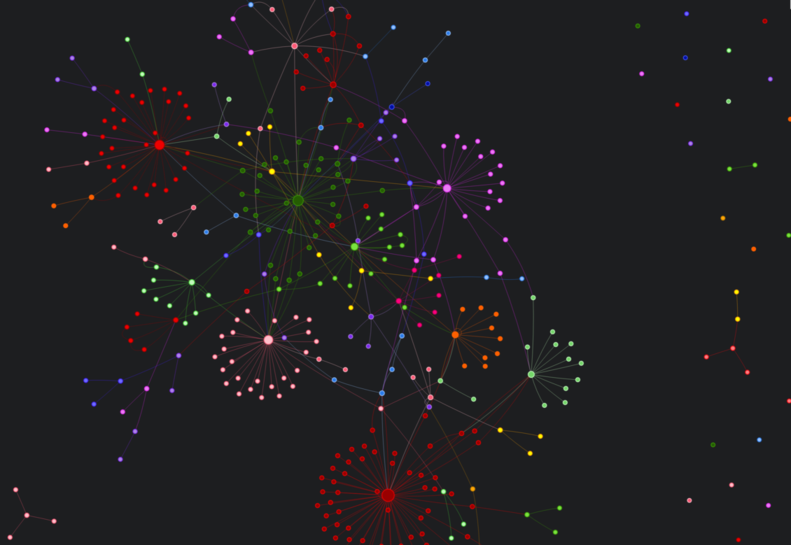You may have noticed the recent Zettelkasten hype, amplified by well-deserved popularity of Roam Research. I’ve been following the tools emerging in the space, and outline my personal explorations in this post. Note: I’m using tools designed for the Zettelkasten method, but not trying to faithfully implement the method itself.
Here’s a simple model I’m trying for my digital brain: a heterarchy of text entities, linked together in a graph. A node represents any concept that I care enough about to take notes on: a person, place, company, book, paper, technology, field, etc. An edge is automatically generated whenever the notes of one node reference another node, which enables the graph structure to grow passively and organically.
A note’s embedding in the graph provides its context, which makes notes more likely to be found when they should be. This augments the utility of a note over time, which motivates me to take good notes.
I use org-roam generate, navigate, and manipulate my graph (config here). If you’re already familiar with Emacs + Org Mode, definitely try it out. For everyone else, Gwern said it best:
“Friends don’t let friends use heroin or org-mode — are you ever really going to make back the time it takes to learn & customize org-mode?”
Well, Gwern, I’m working on it. Here are some things I currently find useful to augment with the graph structure:
- Executable code blocks (see Org babel and emacs-jupyter)
- Notes linked to locations in PDFs (see org-noter and org-roam-bibtex)
- TODOs - tasks generated while taking notes are automatically linked back to their originating graph context
- Daily journal entries
The following are WIP:
- Spaced repetition (via org-drill)
- Importing notes that predated the graph.
Here’s a bird’s-eye view of part of my graph (courtesy of org-roam-server):

As I learn more about what’s possible with this representation, I’ll update this post.
Some other interesting projects / resources in this space:
- Neuron
- RoamBrain
- Exobrain
- Andy Matuschak’s Notes
- Jethro Kuan’s Braindump
- Jethro Kuan’s Post - How to Take Smart Notes
- Nikita Voloboev’s Wiki - Not really a Zettelkasten, but quite impressive.
- Textmind
- WorldBrain.io Vision
And don’t miss the classic “As We May Think”.